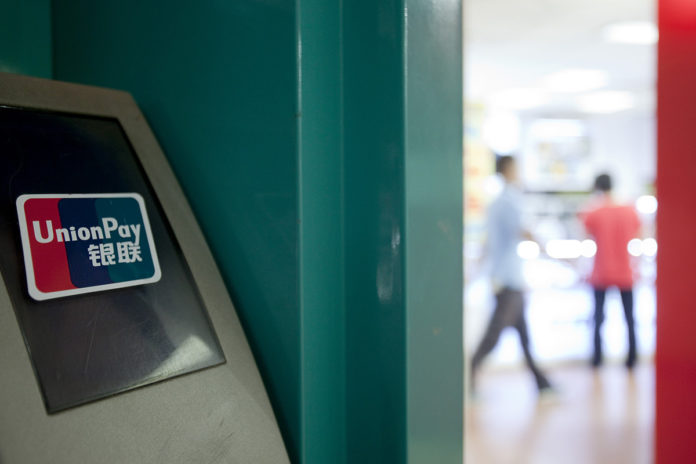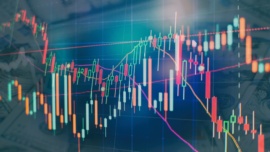While a ‘staggering’ growth in withdrawals in Hong Kong’s ATMs following the implementation of the Know Your Customer (KYC) technology with facial recognition in Macau’s ATMs last June “would be expected,” says a local source, it continues to be unsubstantiated by the Hong Kong Monetary Authority (HKMA).
In the last few days, South China Morning Post (SCMP) has produced a couple of pieces in which it reported that the implementation of the KYC technology in Macau targeting mainland Chinese UnionPay (CUP) cardholders had triggered a ‘surge’ in money withdrawals in Hong Kong.
The KYC technology entails facial recognition and identity card reading, in addition to PIN number verification of CUP cardholders withdrawing cash in Macau, limited to two transactions per day not exceeding MOP10,000.
The policy was implemented with the aim of discouraging the use by the same person of several CUP cards in an effort to curb illegal cash outflows.
Speaking to Business Daily on the phone, Professor Jacky Yuk Chow So, Dean of the Faculty of Business Administration at the University of Macau, recalled that other goals of the new policy concern “controlling money laundering and perhaps discouraging gambling activity.”
Just yesterday, SCMP reported that Hong Kong police had launched ‘a significant number’ of investigations into what the newspaper termed the ‘suspicious use of China UnionPay bank cards to withdraw cash from ATMs in the city amid growing concern over illicit capital flight from the Mainland, according to sources with knowledge of the situation.’
On Monday, the same newspaper reported that HKMA had instructed local banks to submit data on cash withdrawals by UnionPay cards conducted in the city’s ATM network as the regulator is allegedly cracking down on unauthorised capital outflows from Mainland China.
Speaking to Business Daily, a source familiar with the gambling and financial system in Macau said that “despite the SCMP report, there has been no ‘surge’ in ATM withdrawal patterns in Hong Kong,” adding that ATM withdrawals in the neighbouring city “are up a little bit compared to previously, but not substantially so.”
As for the volume of transactions conducted across the Delta, the same source pointed out that “the reality is that Hong Kong always had significantly higher ATM volumes than Macau anyway.”
Loopholes
Professor So argued there might be a possible correlation between an alleged rise in the number of cash withdrawals in Hong Kong’s ATMs – where the technology has not been implemented – and the enactment of the policy in Macau in June.
“We have to consider that for ‘normal’ tourists there should be no problem keeping within the limits [defined by the latest regulations]. But those who come to Macau to gamble are not ‘normal’ tourists. They are individuals with special purposes. People would look for all the loopholes they can find,” explained the professor.
All things considered, it is also possible that some people might take advantage of Hong Kong’s less strict position on customer authentication to withdraw money from ATMs, suggests Professor So, and not necessarily use it for the purpose of gambling.
In such cases – say, where people would like to “purchase luxury goods” – the professor claimed that going to Hong Kong “doesn’t necessarily have to do with gambling anymore, but simply with the fact that people cannot take [as much] money out” as they would be able to do here.
That said, this would lead to a different problem, which is the amount of cross-border money portables, somewhat “uncontrolled and not strictly checked” So highlighted.
The Monetary Authority of Macao (AMCM) has not replied to our questions about the variation in the amount of withdrawals since the KYC technology was implemented in the city or about the current number of ATMs featuring the new technology since the latest data provided by the Authority to Macau Business in July – that is, 1,000 of a total of 1,250 ATMs as at the end of last month.
UnionPay
As a company that provides services to several banks, UnionPay is at the core of the KYC system. But it is not the only one.
“I don’t think UnionPay is the only way to get money in Macau. I’m pretty sure you can use other bankcards like Mastercard and Visa,” our source with knowledge of the gambling system suggested.
UnionPay was not reachable for comment in their Hong Kong office, overseeing Macau and Hong Kong operations, as at the time this story went to print.
As for alternatives to generate liquidity, they range from the use of bitcoins to Point of Sale (PoS), our sources suggested.
Apropos the use of bitcoin, Professor So claimed that although some people “are proposing . . . [its use] . . . it is still very unregulated and uncontrolled,” in addition to the fact that “people may not yet be very knowledgeable about the technology itself or the ways of using it.”
As for the PoS system, the professor argued they offer another “loophole” by enabling people to “artificially buy something while not really buying it.”
UnionPay operates some 6,257 PoS ‘sites’ in Macau, according to the latest data provided by the company.
























